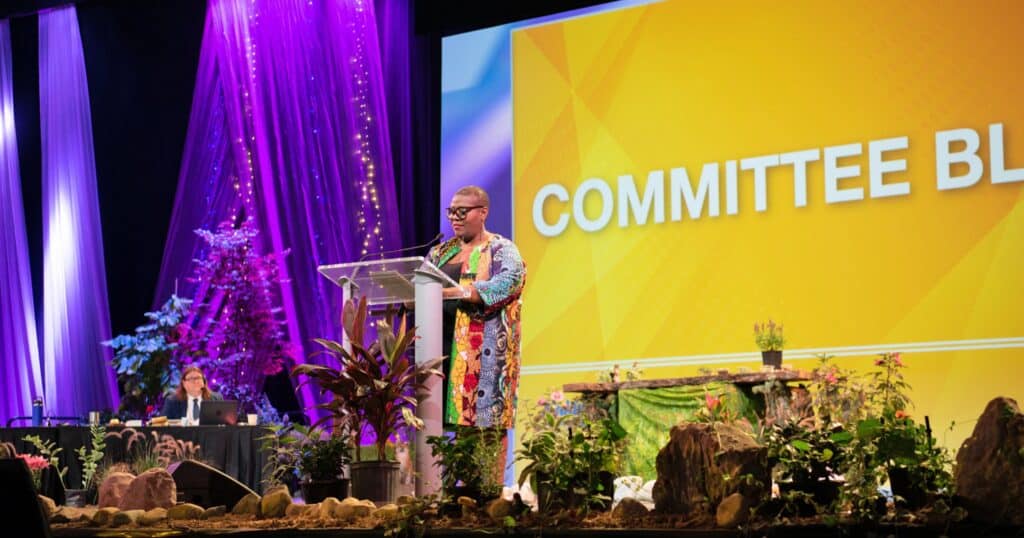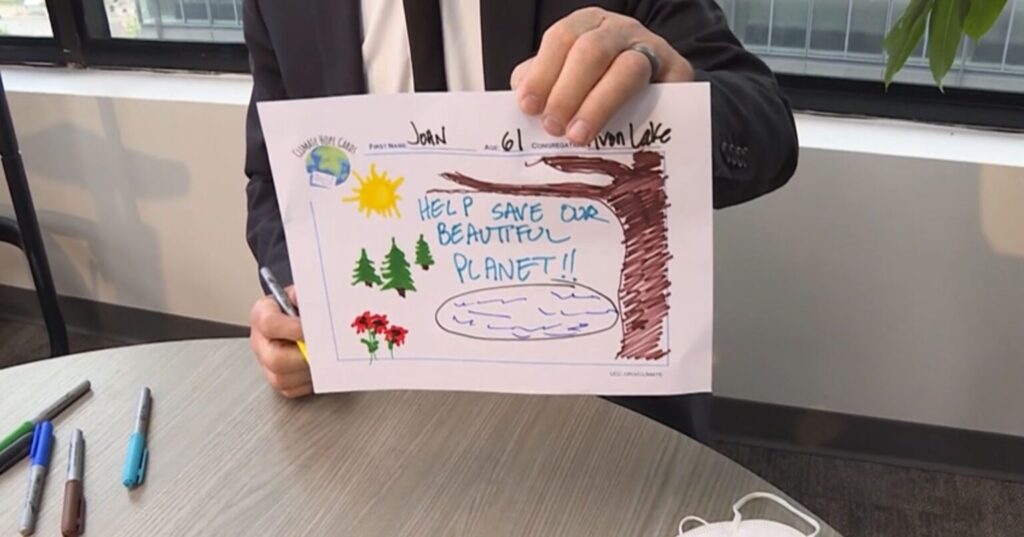Minnesota UCC advocates brave cold to oppose Line 3 pipeline
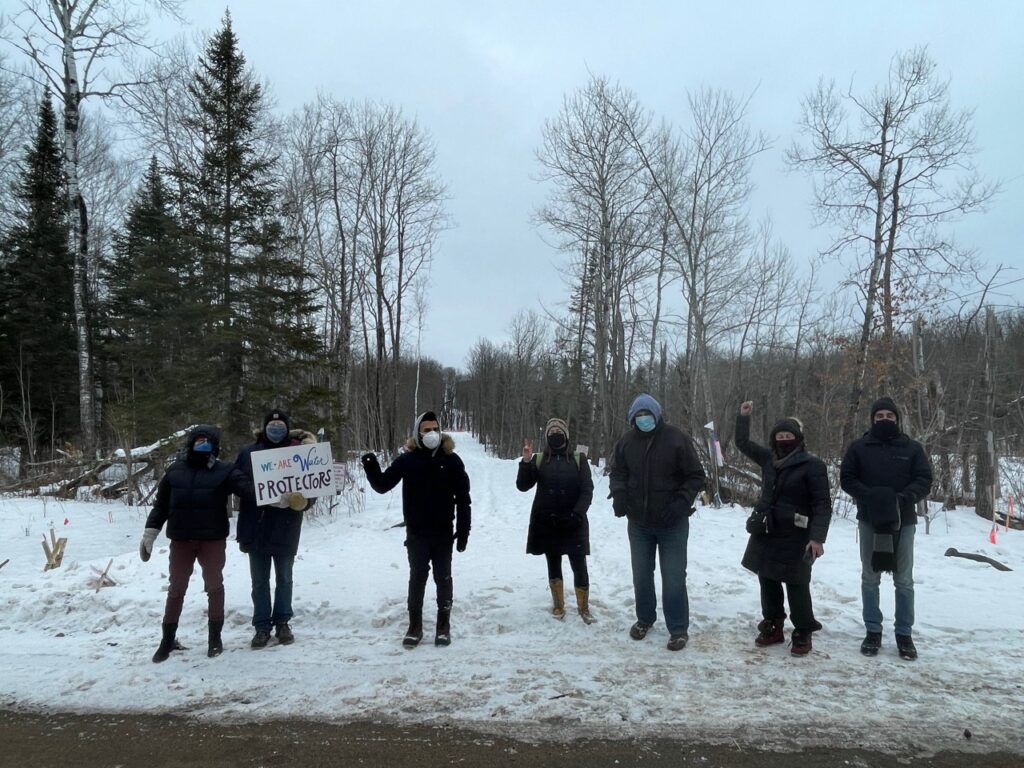
Eight members of Mayflower UCC, Minneapolis, spent a cold morning just north of Palisade in northern Minnesota last week. They stood near the banks of the Mississippi River at an indigenous encampment, the Water Protector Welcome Center. Why in the world would our Mayflower friends do that? Palisade is where the Canadian corporation Enbridge is ready to drill its tar sands Line 3 oil pipeline under the river. A line that will pump out 760,000 barrels daily. Minnesota state agencies and the Army Corps of Engineers have issued permits; construction is underway.
At this stage, action to stop Line 3 follows two tracks. The pipeline poses great risk to indigenous lands, water, food, way of life, and spiritual well-being. The first track focuses on direct opposition to the pipeline construction.
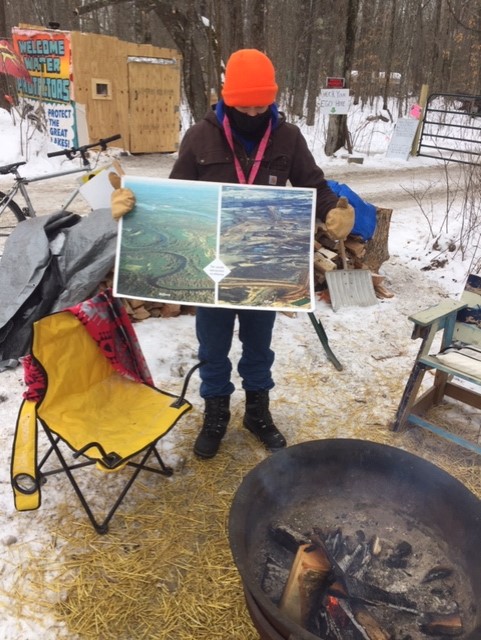
Mayflower’s and other Minnesota faith leaders have actively and persistently opposed Line 3. The faith leaders knew Line 3 would impact indigenous citizens most directly. The pipeline would pass through spiritually significant indigenous lands and waters, placing staples of indigenous life at risk. Affected land includes huge areas acknowledged by 19th Century treaties as Indian territory with established rights to hunt, fish and gather. Faith leaders also knew that their own neighborhoods would never be subject to such intrusions. The Golden Rule to “not do unto others in ways you would not want to be treated” figured strongly in Mayflower’s rationale.
In the second track, the Red Lake Nation, the White Earth Nation, Winona LaDuke’s Honor the Earth, environmental groups such as Friends of the Headwaters, Youth Climate Initiative, the Sierra Club, and the Department of Commerce filed appeals of the administrative decisions made by the state’s Public Utilities Commission, Pollution Control Agency, and Department of Natural Resources. The court appeals seek to overturn Line 3’s environmental impact statement, Certificate of Need, Route Permit, and water quality permits. The Minnesota Court of Appeals recently established briefing and argument dates. A final decision is expected in June.
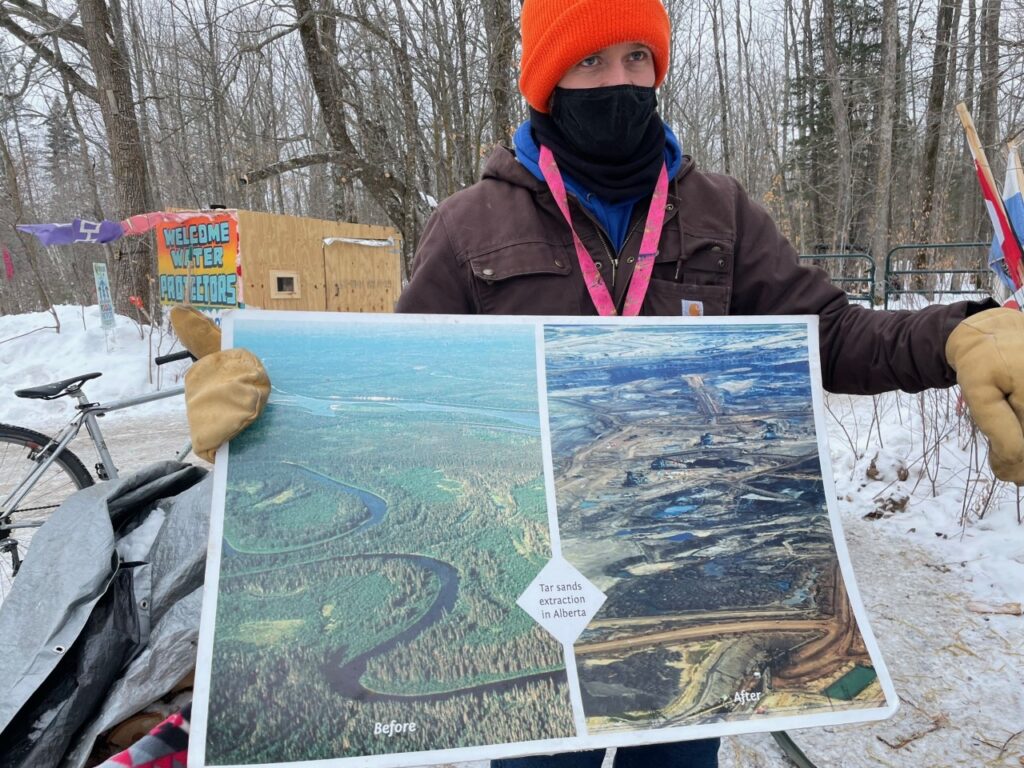
While Minnesota Governor Tim Walz initially allowed the Department of Commerce, the state’s experts on determining need for large energy facilities, to join the appeal of the decisions, he did not allow the DOC to support motions to stop construction while the appeals proceed. The state Court of Appeals, before which the appeals are pending, denied the motions for stay last week.
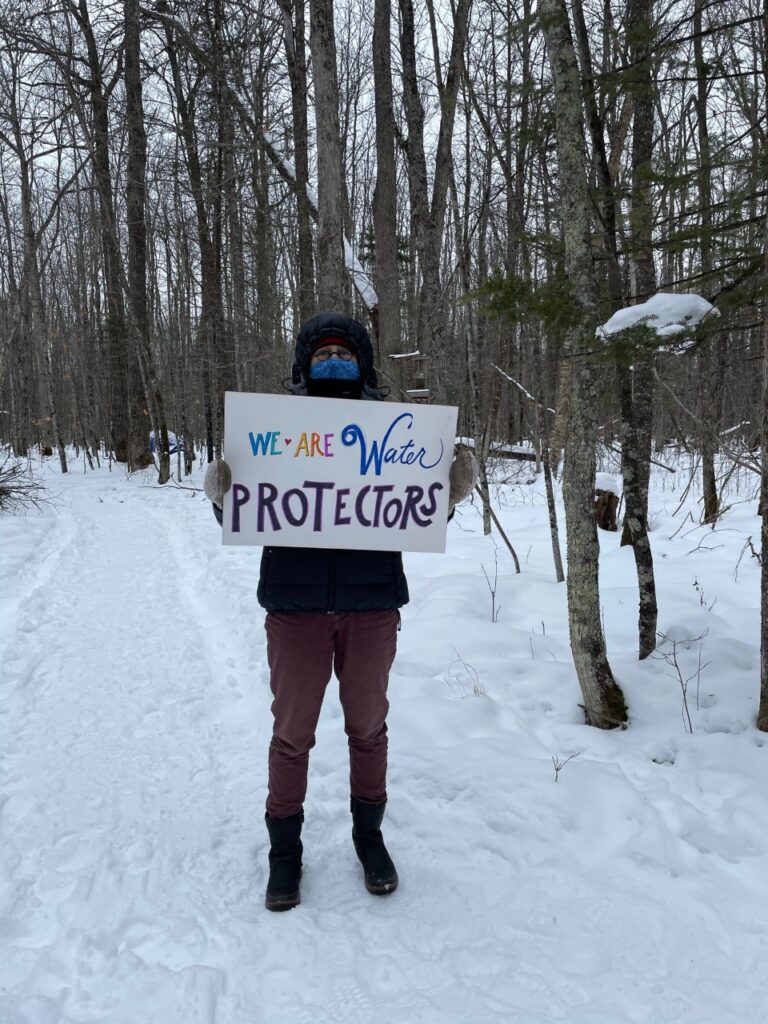
We know about the support for Line 3 by mayors of northern Minnesota cities from letters published in local and statewide newspapers. They try to make the points most commonly made by proponents of Line 3:
- This facility was subject to six years of process, the most ever for such a project. The process was long but substantially flawed. The essential initial approval—certification of need for the output of the facility, normally made by forecast of demand, was not made as required by Minnesota law. The process also expressly ignored indigenous treaty rights, greenhouse gas emissions, and the issue of climate change. These are key issues in the judicial appeals.
- The need for oil is here to stay. This argument ignores the economics of the demand for the most expensive and dirty oil, tar sands oil. Cheaper wind and solar energy are replacing coal, natural gas, and oil. It ignores the demands of meeting the climate crisis and that leaders in the fossil-fueled automotive industry, like General Motors, are ending the production of fossil-fueled vehicles by the mid-2030s. Electric vehicles are the future.
- The need for jobs in the state. The proponents trumpet the thousands of construction jobs Line 3 provides, but ignore the temporary nature of those jobs. Meanwhile, there is an enormous need for maintenance and repair of state infrastructure that can and should be funded with Minnesota bonding dollars. Taking care of our infrastructure would provide thousands of good union jobs for years, driven in part by the need to adapt to climate change.
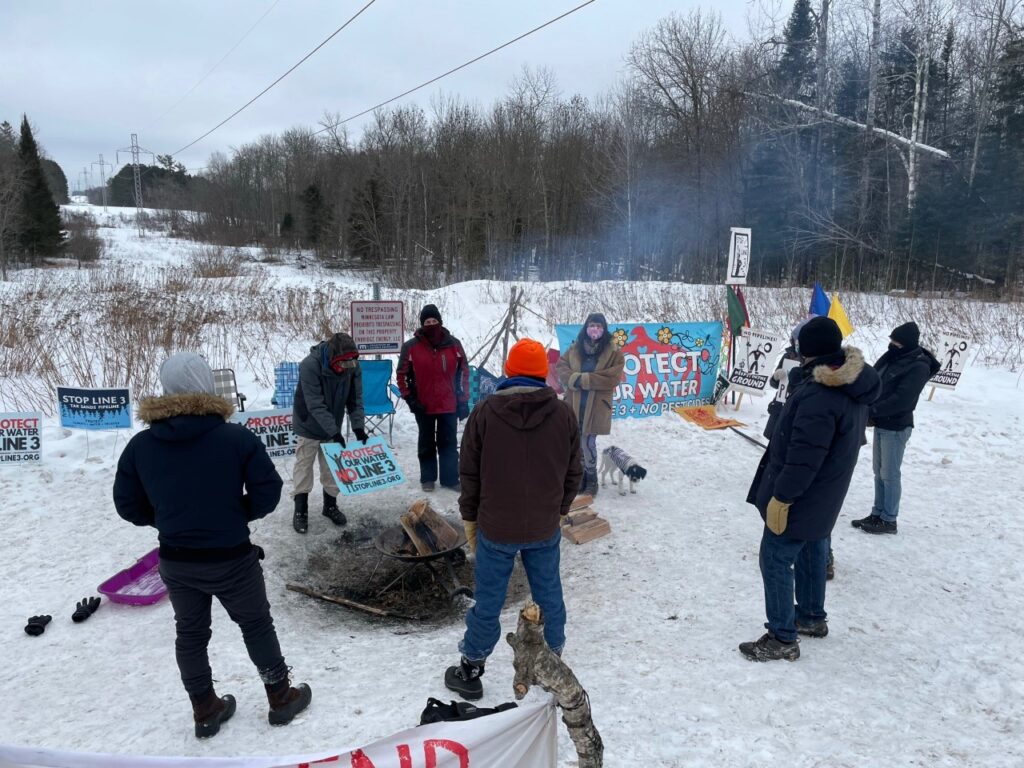
Mayflower’s ally faith-based organization, Minnesota Interfaith Power & Light, works with the indigenous groups whose way of life is put at risk by Line 3, to host people and communities of faith at the Welcome Center at Palisade to share presence, support, and sustenance with the community there. We came to do what we can to support our spiritual brothers and sisters, our neighbors. This is a matter of faith and justice—climate justice, economic justice, racial justice, environmental justice.
The Rev. Dwight Wagenius serves as Community Minister for Mayflower UCC, Minneapolis, Minn.
Related News
‘On My Mind Today’ shares thoughts and concerns from UCC’s Karen Georgia Thompson
In a rapidly changing and volatile world — where the latest news raises more questions...
Read MoreSelf-nominations requested for individuals to serve as General Synod committee chairs
As planning for General Synod is well underway, the General Synod staff are seeking...
Read MoreValentine’s Day was a great time to have a heart for the climate: UCC churches take action
The United Church of Christ Environmental Justice ministries recently invited congregations to...
Read More
